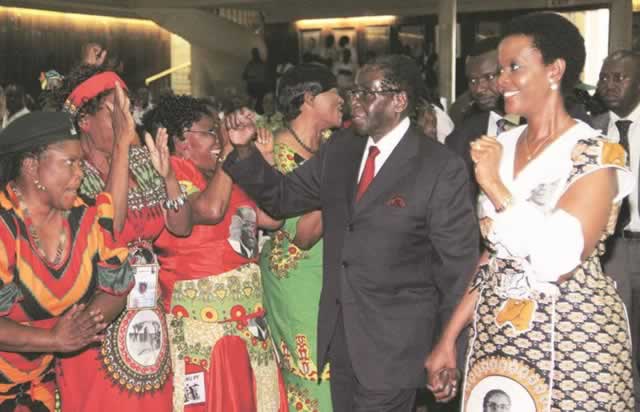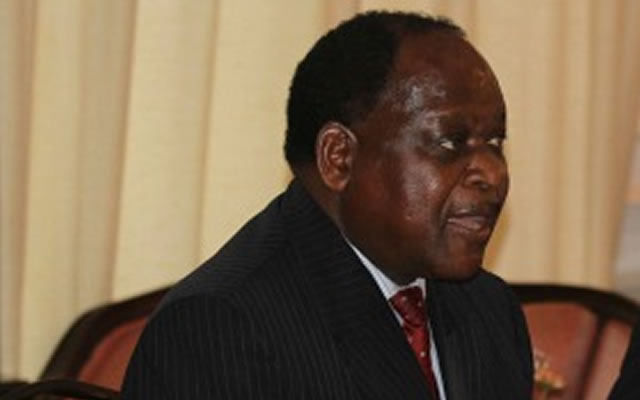Backyard colleges compromise education


Primary schools have been churning out thousands of children with few secondary schools to absorb them
Kudzanai Gerede Correspondent
Lucy Moyo (48) rues the decision she took when she secured enrolment for her daughter Rumbidzai at a nearby college close to Waterfalls’ Parktown Shopping Centre. Unknown to her was the dreadful fate that lay ahead.
Barely a year passed, her daughter was due for registration for ZIMSEC Ordinary Level examinations candidature but the college failed to secure an examination centre status for its pupils at the 11th hour. It later emerged the institution was not registered with the Ministry of Primary and Secondary Education as is mandatory.
Rumbidzai could not sit for exams last year and has spent this entire year studying at home with the help of a private tutor since her widowed mother cannot afford to send her to a proper school.
“When they enrolled my daughter, the principal at the college assured me the college was running smoothly as a registered institution.
“The problem with these colleges is that all they seek is money at the expense of parents’ hard earned cash and they seriously compromise the standards of education in the country,” Lucy says regrettably.
She says the situation is compounded by the fact that there is only one secondary school (Lord Malvern) in Waterfalls and many parents cannot afford enrolling their children at the school due to an unforgiving economic environment and high unemployment bedevilling the country.
“We paid $20 per month at the college and I still struggled to cope so I had no other choice but to send my daughter to the cheapest school I could afford. There are no chairs but several bricks to support long boards which make up as benches and they even use a veranda as one of the classrooms,” she narrates.
Backyard colleges have been sprouting at every street corner, church building and backyards of enterprising home owners since the country plunged into an economic crisis in 2008.
These colleges are rampant in high density suburbs as they are often cheaper than council or Government schools, with fees ranging from $20 to $30 per month, prompting many stranded parents who cannot afford formal schools to improvise.
The scourge has not only surfaced in urban centres but has become the norm in rural areas, growth points and farming communities.
Fees at Government schools range from $ 80 to $150 per term in urban centres depending on the school grouping, with those in rural areas charging between $50 and $ 100.
Early this year the Ministry of Primary and Secondary Education shut down close to 30 learning institutions due to malpractices at such colleges, and this has profoundly compromised the quality of the country’s education.
Statistics availed by ZIMSEC indicate a declining trend in terms of pass rate for Ordinary Level examinations, with a 20,72 percent national pass rate recorded in 2013 and a slight improvement of 30,85 percent in 2014.
Much of this has been attributed to poor teaching standards at the illegal colleges and the engagement of unqualified teachers by most of them.
One former teacher who requested anonymity said at a particular college the principal assigned him a class comprising pupils doing three different grades in one tiny makeshift classroom teaching them simultaneously.
There have been concerns of high levels of indiscipline and immorality amongst students at private colleges as they lack proper discipline.
Epworth Residents Development Association secretary general Mr Peter Nyapetwa who is also worried about the status quo in the education sector, says they have engaged relevant authorities.
“We are worried about the influx of backyard learning centres in our area and we have noticed a drop in the standards of learning and the results coming out of these institutions. It’s all because they employ unqualified teachers who, in many cases, only have O-Level qualification.
“We have tried to get in touch with the Ministry of Education and we have seen some of them being closed but some resist the bans”, he said.
However, Permanent Secretary in the Ministry of Primary and Secondary Education Dr Sylvia Utete-Masango earlier this year said the ministry was concerned with the status quo in the country’s education system and were taking measures to counter the sprouting of illegal learning institutions.
“The identification of illegal colleges is an ongoing process. Measures are being taken to regularise those that meet the criteria and close those that do not meet basic standards”, she said.
The sprouting of illegal colleges has been largely attributed to Government’s failure to build more schools for the country’s growing population and new settlements since independence owing to a lean fiscal allocation.
Primary schools have been churning out thousands of kids with few secondary schools to absorb them.
However, despite strong criticism of private colleges, there are other legally recognised private institutions across the country that have offered quality educational standards who remain competitive in churning out quality students.
Government has, however, identified a deficit of 2 056 schools across the country’s 10 provinces, mainly in resettled areas.
Minister Dokora recently said the ministry was in the process of constructing 100 schools as a matter of urgency, expected to be complete by March next year.
It also targets the construction of 2 000 schools as a long term project.
The construction of these schools will ease pressure on existing schools that have had to bear with huge enrolment of pupils beyond their stipulated capacity in the communities they serve thereby according every child their right to quality education.
Feedback — [email protected]









Comments